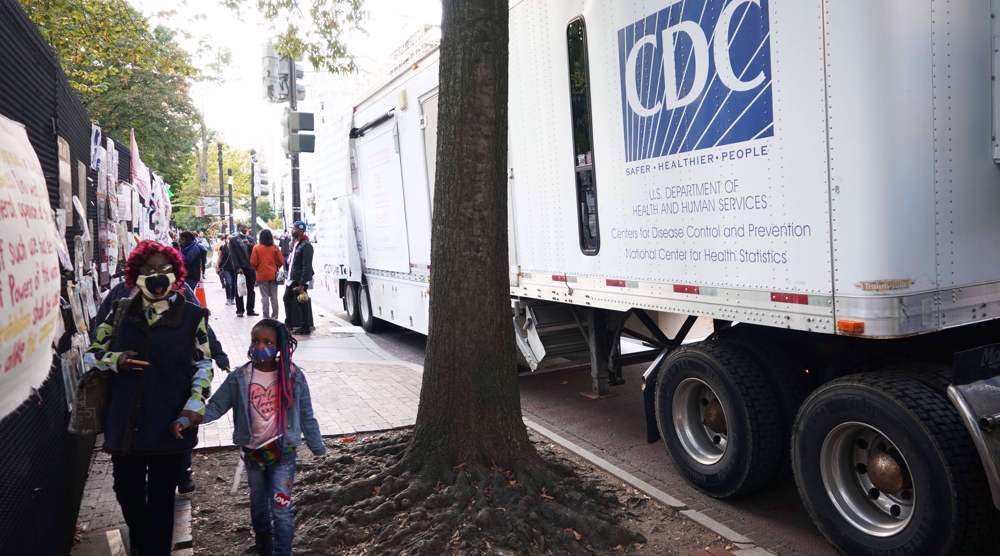US judge considers challenge to CDC order halting evictions
A federal judge in the US city of Atlanta is weighing a challenge to a Trump administration directive that halts the eviction of certain renters through the end of the year in an effort to prevent the further spread of the coronavirus.
The Centers for Disease Control and Prevention last month issued an order barring landlords from evicting any person covered by the order from a residential property for failure to pay rent. The measure followed an executive order issued by President Donald Trump in early August that instructed public health officials to consider measures to temporarily halt evictions.
Individual landlords from four states — Georgia, New Jersey, South Carolina and Virginia — and a trade association representing owners and managers of rental housing in all 50 states filed a lawsuit challenging the order. The inability to evict tenants who aren't paying rent is causing them irreparable harm, they argue, and they asked the court to prohibit the enforcement of the order while the lawsuit is pending.
The lawsuit, filed in Atlanta where the CDC is located, is one of several across the country challenging the agency's order.
US District Judge J.P. Boulee on Tuesday heard arguments from lawyers for the landlords and the government during a video hearing. He asked few questions and did not indicate when he might rule on the request.
The CDC order, which took effect Sept. 4 and runs through the end of the year, was issued just as other coronavirus-related eviction bans were expiring. The agency argued that bans are an effective tool for preventing the spread of the coronavirus.
“They do so by facilitating self-isolation for sick and high-risk persons, easing implementation of stay-at-home orders and social distancing measures, reducing the need for congregate housing, and helping to prevent homelessness,” the government said in a court filing.
To be eligible for protection, renters must have an income of $198,000 or less for couples filing jointly, or $99,000 for single filers; demonstrate they’ve sought government help to pay rent; declare that they can’t pay because of COVID-19 hardships; and affirm that they are likely to become homeless if evicted.
In asking the judge to invalidate the CDC’s order, lawyer Caleb Kruckenberg argued that the agency has exceeded the authority granted to it by Congress, acted arbitrarily and capriciously, and unconstitutionally impaired his clients' ability to access the courts.
His clients are not asking the judge to evict anyone, they're simply asking to be allowed to go through the court process provided for by law for landlords whose tenants aren't paying rent, Kruckenberg said.
He called the CDC's action “breathtaking” in its scope and, noting that the agency's order could be extended beyond its current deadline, said his clients are “being forced by the CDC to provide free housing indefinitely.”
Leslie Vigen, a lawyer for the government, noted the extraordinary circumstances of the ongoing coronavirus pandemic, which has killed more than 220,000 people in the US, and argued that the order represents the CDC's “reasoned judgment as a public health agency.”
The agency has provided numerous findings that show why public health experts believe eviction bans help prevent the spread of the virus, she said. The order is in the public interest and the temporary imposition on the landlords' property does not amount to an invalidation of state law, she argued.
She warned that invalidating the order could result in millions of evictions across the country leading into the winter flu season.
Source: AP
US envoy’s remarks on Israeli West Asia expansion shows Muslim world targeted: Houthi
Iran says any agreement with US must fully safeguard national rights, interests
VIDEO | Press TV's news headlines
Trump administration terminates aid programs to seven African countries: Report
IRGC warship back home after long-range deployment for BRICS naval drills
Democrats’ secret ‘autopsy’ report of 2024 election links Harris’ loss to Gaza stance
'Defeat is certain for them’: Iran Army chief derides enemy’s claim of invincibility
Explainer: How job scarcity is pushing working-class Americans to enlist in the military










 This makes it easy to access the Press TV website
This makes it easy to access the Press TV website